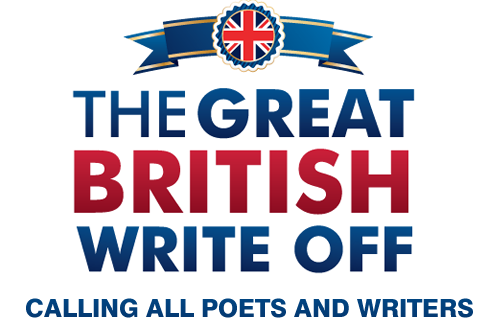Here at The Great British Write Off, a competition designed to hep writers and poets showcase their work, we asked four of our editors what they look for in a poem. Keep this advice in mind when you're entering!

Jenni Bannister
The first part of a poem to grab me will always be the rhythm. If a poem has a good flow, whether it’s fast, slow, gentle or punchy, it will always stand out. Read your poem aloud to see how it sounds, if there are any places where it loses its rhythm.
I find the length of a poem irrelevant. A three line haiku can be just as effective as a 50 line epic. However, if a poem isn’t compelling it can be easy to lose interest by line 30. You have to get me to care about your subject if you want me to stay with you for that long.
Thirdly: surprise. I like a poem to surprise me. Whether it catches me off guard with its emotion, has a funny twist at the end or switches up the rhythm or rhyme for effect, anything that is away from the norm will catch my attention. Subvert my expectations and most importantly, stay away from clichés!
Cheryl Whitfield Distinct
Cutting imagery that prompts specific snapshots rather than sweeping, generic observations. I prefer a poem that focuses on the minor details and uses them to represent something of greater depth, rather than poetry that tries to be all-encompassing (or crowd-pleasing!) A poem is definitely more interesting to me if it is personal instead of general.
Saying that, one of my favourite poems is ‘Cascando’ by Samuel Beckett, which makes use of some arguably generic statements about love! However, Beckett twists the typical love poem into something much darker, colder and less stable, both through his short but loaded lines and his dismissal of formal punctuation.
The main thing is originality, though – we read a lot of poetry every day, so something with a unique or contemporary angle (whether in style or content) will nearly always catch my attention over the traditional. (Don’t let that stop you from entering your sublime sonnet though! I’m sure I can be convinced.)
Donna Samworth
I love poetry that really draws me in – a poem that sets the tone from the word go. This is why ‘The Raven’ by Edgar Allen Poe is one of my favourite poems. The first line ‘Once upon a midnight dreary, while I pondered weak and weary’... suggests to me that the poem will be dark and melancholy and will be telling me a story. I instantly want to read on.
I love a poem that is personal to the narrator. When writers write about a topic they are passionate about, or they have experience with, you can really feel that within the poem. I think ‘The Soldier’ by Rupert Brooke is a great example. The passion for his country really comes across.
I generally have no preference towards writing patterns but I am partial to the use of a little imagery and repetition. ‘The Highwayman’ by Alfred Noyes for example adds the line ‘And the Highwayman came riding – riding – riding’ throughout the poem. This really sticks in my mind and adds a focal point to the poem, making it instantly recognisable.
Finally, a good poem to me is a poem that stays in your head, makes you think, makes you question. If you can write me a poem that really sets my mind working, then your job is complete!
Lisa Adlam
What I look for in a poem is precision and attention to detail in the choice of words, every single one should really add something to the overall effect. Great images can be created in the juxtaposition of just a few carefully placed words and sometimes the more sparse the text, the greater the power of the imagery.
It’s important that the work has a complete, coherent vision of what it wants to say and that it does not veer off topic. The overall message should be simple but powerful. A good poem should have something new to put forward or a new way of saying it so that you feel like you have never heard it before.
The rhyme scheme, form, or length of the work is not as critical as its overall feeling, sound and resonance. It should be fresh, full of surprising detail and really grab my attention. It can make me smile or it can make me feel disturbed, so long as it stays in the memory long after it is read. It should take me somewhere, whether unexpected or familiar, and make me think about things from a new perspective.
I also love a good closing line, whether it’s a twist that comes from nowhere or a great final rhyme, I think it really helps make a poem memorable.
If you'd like to find out more about this year's free poetry and creative writing competition, please visit our website or find us on Twitter #GBWO!
Comments